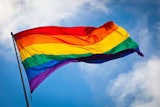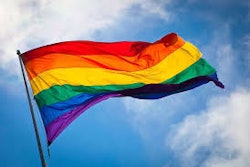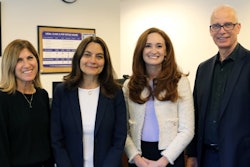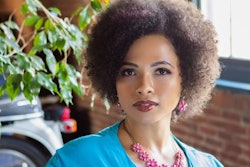When Black slaves came to this country stripped of any connection with the history and culture which gave them a sense of place in the universe, they heeded the human urge to define themselves.
The Africans were bound by the rules of slavery and subject to strange masters in a strange land, where people of another color had all the power, and they had none. The lines of demarcation were simple, until human nature interfered.
Slaves and masters had children, living proof of both the burden of Black powerlessness and the white transgression of misogynistic lust, or love. The very existence of their offspring should have helped to bridge the gap and blur the lines between the two races. Instead, it created such confusion, that, in 1805, Thomas Jefferson, himself the father of many biracial children and one of this nation’s founders, devised an algebraic equation to define the generation when racially mixed blood becomes white. In the end, however, even his numbers meant nothing without emancipation.
By the time freedom came, African Americans had begun to make sense of it for themselves. Freedom from slavery, they found, did not shelter families, feed children or save lives. Race did. African Americans established a social hierarchy where skin color determined rank. The closer the skin color to white, the more acceptable the person. That culture and those rules, though long hidden in the hearts of many African American families, are the basis for Dorothy West’s “The Wedding.”
Confusion in `The Oval’
Set in Martha’s Vineyard in the 1950s, “The Wedding” crashes the gates of color-coded thinking as one community wrestles its fears to the ground. The characters are the families of “The Oval,” an insular area of the Vineyard reserved for members of the Black bourgeoisie who could afford to have summer homes there. They were of all skin colors. Many were second generation professionals who could trace their family trees to white families or those of free, educated Blacks. But all of them had color-coded hearts.
In “The Wedding,” Shelby Coles, the privileged daughter of one of The Oval’s first families is about to marry a white jazz musician. Described by West as a beautiful woman with the “rose-pink skin, golden hair and dusk-blue eyes” of her maternal great-grandmother, Shelby has the conscience of a woman of color, As the day of her marriage draws near, she begins to question why she has not fallen in love with a Black man.
It’s through Shelby’s interactions with other “Ovalites” that the bride-to-be finds her answer. And they are a confused bunch. Shelby’s father, Clark Coles, M.D. remains with his light-skinned, tightlipped wife only for appearances. He’s been in love with his self-sacrificing, brown-skinned nurse for decades. Corinne, Shelby’s mother, is bitter that she herself was forced to marry a man so brown in order to ensure the financial well-being of her progeny.
Yet, she cannot understand why her daughter would choose to marry “out of the race,” when so many young Black men from fine families were interested. The Coles family matriarch, Gram, is a woman lost in color-coded bitterness. The daughter of a plantation master and a slave, she believes that she is an aristocrat “surrounded by descendants of slaves, with nowhere to die but among them….” Gram is sure that a white son-in-law will help her reestablish her racial identity as white. It is a desire born of a coldness of heart that will not allow her to touch or otherwise acknowledge her brown-skinned great-grandchildren.
Prolific octogenarian
Obsessive attitudes about color and background are not limited to the “best” of the Oval’s families. West has not forgotten to include a villain in dark brown. Lute, the nouveau-riche wife-beating father of three lovely young girls by different white women, has set his cap for Shelby. He’ll do — anything including committing murder — to stop the wedding.
While much of “The Wedding” may read like a soap opera, the novel is based upon West’s own brand of social commentary on the Black middle class. As a year-round resident of Martha’s Vineyard since 1943, she’s earned the right to use the resort island, long the haven for middle-class African-American families, as the backdrop for social drama. How much of the novel is based upon fact will remain subject to the reader’s experience with color-codes and imagination.
This marriage of fiction and commentary comes almost naturally to West and most of her friends and peers, which have included the likes of Zora Neale Hurston, Langston Hughes and Countee Cullen. West’s first novel, “The Living is Easy,” was published in 1948. Fourteen years prior, West founded Challenge, one of the most influential magazines of its time. In 1937, she started New Cballenge, with Richard Wright as her associate editor. She published “The Richer, the Poorer,” a collection of short stories and autobiographical pieces in 1994. Ms. West is 89 years old.
Black Issues In Higher Education
Top Ten Books
On Campus
Weeks
On List
1. WAITING TO EXHALE 26
Terry McMillan - Pocket Books, $5.95
2. AND THIS TOO SHALL PASS. 14
E. Lynn Harris - Anchor/Doubleday, $23.95
3. WHEN DEATH COMES STEALING 26
Valerie Wilson Wesley - G.P. Putnam & Sons, $5.99
4. NEVER SATISFIED. HOW AND WHY MEN CHEAT 4
Michael Baisdan - Legacy Publishing, $13.95
5. JUST AS I AM 62
E. Lynn Harris - Anchor Books, $10.95
6. BROTHERS & SISTERS 14
Bebe Moore Campbell - Putnam, $5.95
7. COFFEE WILL MAKE YOU BLACK 26
April Sinclair - Avon, $10
8. SISTERS & LOVERS 4
Connie Briscoe - One World/Ballantine, $5.95
9. ACTS OF FAITH: DAILY MEDITATIONS 64
FOR PEOPLE OF COLOR
Lyania Vanzant - Fireside/Simon & Schuster, $9
10. BODY AND SOUL: THE BLACK WOMEN'S 38
GUIDE TO PHYSICAL HEALTH AND
EMOTIONAL WELL-BEING
Linda Villarosa - Harper/Perennial, $20
Last
Position
1. WAITING TO EXHALE 1
Terry McMillan - Pocket Books, $5.95
2. AND THIS TOO SHALL PASS. 2
E. Lynn Harris'- Anchor/Doubleday, $23.95
3. WHEN DEATH COMES STEALING 3
Valerie Wilson Wesley - G.P. Putnam & Sons, $5.99
4. NEVER SATISFIED. HOW AND WHY MEN CHEAT -
Michael Baisdan - Legacy Publishing, $13.95
5. JUST AS I AM 5
E. Lynn Harris - Anchor Books, $10.95
6. BROTHERS & SISTERS 6
Bebe Moore Campbell - Putnam, $5.95
7. COFFEE WILL MAKE YOU BLACK 4
April Sinclair - Avon, $10
8. SISTERS & LOVERS -
Connie Briscoe - One World/Ballantine, $5.95
9. ACTS OF FAITH: DAILY MEDITATIONS 9
FOR PEOPLE OF COLOR
Lyania Vanzant - Fireside/Simon & Schuster, $9
10. BODY AND SOUL: THE BLACK WOMEN'S 10
GUIDE TO PHYSICAL HEALTH AND
EMOTIONAL WELL-BEING
Linda Villarosa - Harper/Perennial, $20
COPYRIGHT 1996 Cox, Matthews & Associates
© Copyright 2005 by DiverseEducation.com


















